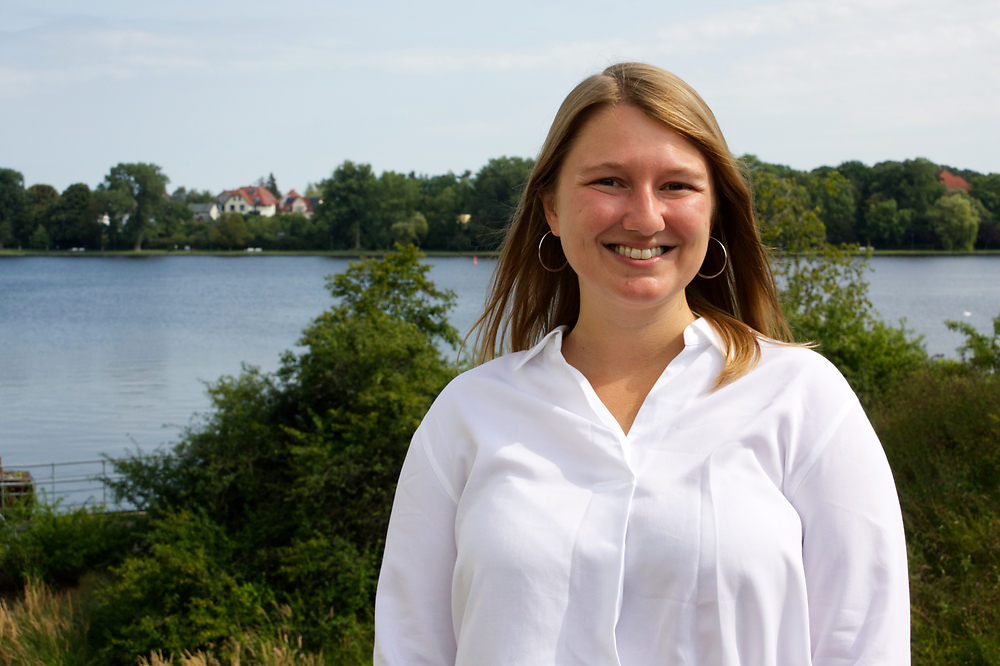August 16, 2023 | News | New faces at MPIDR
Welcome, Megan Evans!

Megan Evans is a new staff member of the Lab Population Health at MPIDR. © MPIDR/Schulz
New Face at MPIDR: Megan Evans started on August 1st. She comes from Pennsylvania State University, USA, where she received her Ph.D. in Sociology and Demography. The title of her dissertation is "Racialized Place-Making: An Investigation of Race, Place, and Value". Her dissertation examines how Home Owners' Loan Corporation (HOLC) appraisers, who were responsible for institutionalizing redlining in the U.S. housing market, considered the Black racial composition of a community as influential to lending risk by examining their language choices and written description of the neighborhoods they chose to redline. Findings provide insights into the social process through which the racialization of lending risk occurred, and identifies the language used in service of preserving neighborhood racial identities. Prior to Penn State Megan did her undergraduate studies at Youngstown State University and received her B.A. in English and Sociology in 2013. She joins the Laboratory of Population Health at MPIDR.
What’s your job at MPIDR and how long will you be working here?
I am a postdoctoral researcher in the population health lab and will be working here for the next few years. I want to focus – among other topics – on investigating the social processes that reinforce place-based inequalities and shape racial and ethnic inequality, population health, and social stratification. In particular, my research program aims to investigate the role of structural racism in perpetuating racial disparities in population health.
What is your motivation to work in this field of research?
When I took my first sociology class as an undergraduate student I finally received the tools and knowledge to understand the abandoned storefronts and residential segregation I had always witnessed in my hometown, the rustbelt city of Youngstown, Ohio. As a kid living in the nearby suburb, I had never known that living just a mere mile outside of the city limits could make such an impact on a person’s life chances. I grew up with the comfort of not having to know, and it was this stark realization that spurred my foray into the field of sociology and demography with the aim to better understand not only racial and ethnic and socioeconomic disparities but also their stubborn persistence.
Why did you choose MPIDR as your new employer?
I chose MPIDR because of the amazing group of scholars here who are producing leading research in the field of demography. I am excited to learn from my new colleagues and expand my network here.
What do you miss most about home (and: what don’t you miss)? What I miss most are the wonderful community of people I get to call my friends and family. What I do not miss is the disproportionate reliance on cars to get around easily. I am enjoying all of the walking and easy use of public transit here.
What is your favorite and what is your least favorite part about work? I do not know that I have been here long enough to know a least favorite part of work yet, but my favorite part is getting to meet everyone at lunch time in the cafeteria and getting to watch the late afternoon ping pong games 😊